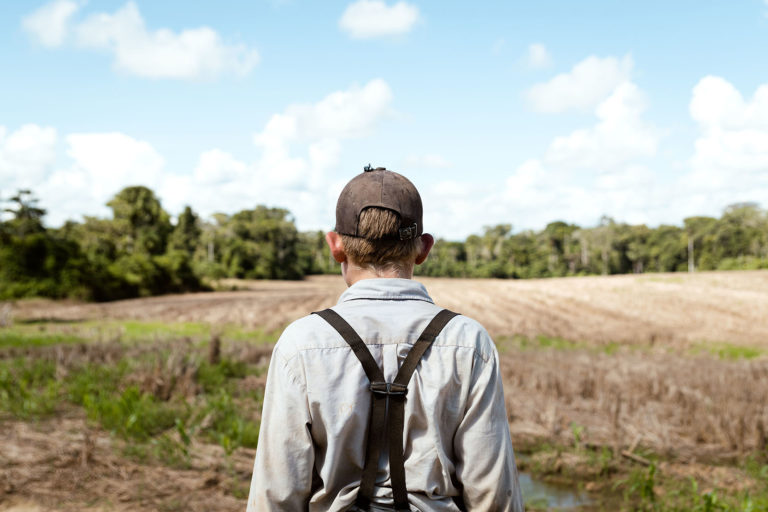Henry Dimbleby’s national food strategy argues that the Covid-19 crisis has brought into painful focus the flaws in the UK’s food system, especially its effect on the nation’s physical and mental health. As the UK regenerates its economy it also has an opportunity to rebuild its food system.
The strategy review has two main focus points: addressing the “worst cracks” in the British food system that have appeared because of the pandemic; and finding ways of maintaining what it calls the UK’s high food standards after the Brexit transition period ends on 31 December and the country seeks new trade deals around the world.
The report is, in effect, an interim strategy. A second report is due next year, to which the government will formally respond and which will address in more depth issues ranging from climate change and agriculture to public health.
Slow motion disaster of the British diet
That the UK went into the pandemic with such high rates of obesity and diet-related disease undoubtedly contributed to the country’s high death rate, the report says, highlighting how damaging the “slow-motion disaster of the British diet” is to the human body.
The poorest people suffer most from this diet, the report says. It notes that 36% of the most deprived people are obese. But the rich also have a weight problem: obesity rates stand at over 20% in all sections of society. “How did we get to the point where food – our source of life giving sustenance is making us sick – and why has it proved to do anything about it?” the review asks.
Dimbleby points to Britain’s food culture. Before lockdown Britons spent a smaller proportion of income on meals at home than any other Europeans. He finds that many rush meals, eat less together as families, and rely more on takeaways. The UK does not place as high a value on cooking as our continental neighbours.
Dimbleby defends the food industry and free market, but says it has to share some of the blame. Too many of the manufactured food products sold in the UK are highly processed, and energy dense; we are tempted by heavily discounted promotions of fat and sugary food aimed to satisfy our “evolutionary craving”.
“Serving sugary, fatty, high-calorie foods guarantees a market,” he notes. “There is more money to be made from selling processed snacks than from fresh vegetables.” Food manufacturers have to be more ethical, says Dimbleby. He rails at faux-health foods, “clothed in a veneer of goodness but no better for you than a Mars bar”.
Tackling poor diet is all not about individual choice. Government has a role to play, and he endorses its obesity strategy, published this week, which restricts junk-food advertising. But more is needed. Should nanny tell us what to eat? “It seems clear that the state has the moral authority to intervene in people’s lives to help them eat better.”
Poverty and food insecurity
One of the “miserable legacies” of Covid-19 will be a dramatic increase in unemployment and poverty, says the report. There will be a surge in “people who find themselves suddenly struggling to put food on the table”. That means more food insecurity and less healthy eating.
Dimbleby praises the government’s efforts at trying to protect jobs and incomes via a range of schemes. “But however Herculean the efforts of the state many people will find themselves out of work,” he concludes. “Poverty will almost certainly increase and with it the number of people going hungry.”
The report focuses on the physical and psychological effects of hunger on young people whose bodies are developing. Lack of nutrition stores up health problems for later life. Poor diet also affects concentration in school. “Food insecurity undermines any serious prospect of improving social inequality.”
The interventions proposed by the review – an expansion of free school meals and holiday hunger schemes for youngsters from all households on universal credit, as well a boost for fresh food vouchers for pregnant mothers – reflects the focus on the importance of tackling child poverty.
The report steps back from making recommendations about the benefit system, though it notes that universal credit was not designed to deal with a massive surge in jobless people, including middle-income households with fixed rent and bills.
“Clearly the best way to tackle food poverty is to tackle poverty.” It adds: “There is no dignity in people having to rely on food banks, food stamps or emergency grants from councils.”
Go for gold in food quality post Brexit
Leaving the EU gives the UK a once-in-a-lifetime opportunity to reshape its food system, potentially putting into place a system of importing food that protects the environment and animal welfare and mitigates climate change.
The government should have the confidence to subject any prospective trade deals to a “gold standard” of independent scrutiny not least by parliament, the review says. All proposed trade agreements should be assessed for their impact on food safety, the environment, human rights and animal welfare.
The government should only cut tariffs on imported food products which meet the UK’s “core standards”, using a series of verification programmes, to, for example, allow US farmers to sell to the UK beef that has not been treated with hormones Any food producer wishing to sell to the UK must prove they meet these minimum standards.
The review advises that certification schemes should used to deliver environmental and climate protection – such as maintaining tariffs on beef reared on land recently cleared of rainforest. The food system is a massive polluter and producer of CO2, it points out, but this is rarely understood as a part of the true cost of food production.
Dimbleby calls for a sustainable food system based upon diversity. His vision includes organic farms, solar-powered high-rise greenhouses, fruit and vegetable cultivation in cities, and robots that pick weeds.
His next report will tackle the impact of meat consumption on the environment, and will lay out a blueprint for a greener food system – “one that no longer makes us or our planet sick”.


